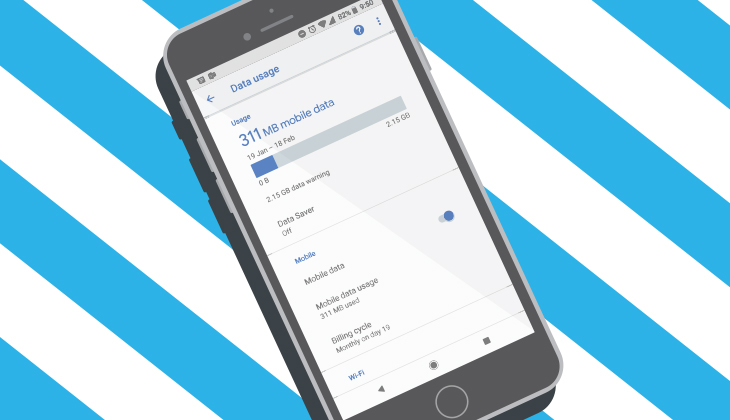TRAVEL WARNING: Data roaming charges still in force!
Chris Hogan, 1st March 2018, Travel
In recent years the EU has been clamping down on the excessive roaming charges that mobile phone companies can charge customers while travelling in Europe. But there's a little known loophole that can still give you a nasty shock when you get home.

In June 2017, after ten years of war between mobile phone companies and the EU, mobile roaming charges were abolished. That means you should now be able to use your free minutes, texts and data while traveling in any EU country just as if you were at home.
However, many of us use ferries when we're making those journeys. What you might not know is that the mobile services available while you're out at sea are not covered by EU regulations.
Unless you're careful about the services you connect to while on board, you can find an extra bill waiting for you when you get home.
Why is this happening?
BBC's "Rip Off Britain" investigated and found that people on ferries were receiving texts from their providers saying that they were connected to a 'maritime network'. But some people thought that was just the name of a wireless hotspot that they had connected to.
The mobile networks at sea aren't part of the larger networks like Vodafone, EE, 3 or O2. They separate networks that connect ships, ferries and oil rigs to each other and to the shore, around the world. They often use on-board satellites so there are extra costs that they have to bear.
Tourists did receive messages warning that they might be charged international roaming fees. Some people didn't use their phones as a result, but of course their phones were still connected and using data in the background.
On their return home they found they had been charged extra - between £12 and £24 just for a short channel crossing. The amounts on longer crossings can easily run into three figures.
What's being done about this?
The networks queried by the BBC explained that it was legitimate cost because while you are on a boat you are not in any particular country. This means you are not considered as being 'in Europe'.
People featured on the programme felt that it wasn't being made clear that this was a separate network and that they would be charged as if they were outside Europe.
Because maritime networks are not registered in the UK, there are no standards for the amounts they can charge the UK-based networks for your use. There are also no limits on how much your provider can charge you in turn.
Vodafone told the BBC that they are now going to bar data usage on maritime networks from February 2018. They and 3 also said that they are going to review the wording of the messages they send to customers to make sure that they are clear about being charged.
What can you do?
The best tip is to turn your phone off before you board a ferry, as the maritime networks can be picked up while you're on shore, and for the length of the crossing.
But of course that might not be convenient if you want to stay in touch. You can go into your phone's network settings and stop it from connecting to any network automatically. You can also switch off data roaming, which will prevent any unwelcome charges from your phone doing things in the background, but you will still be charged for phone calls or texts.
If you are hit by these charges and feel that it wasn't made clear to you, you can ask your provider to refund them. They are not legally obliged to but they may agree as a gesture of good faith.
Related articles
Monthly Newsletter
Not signed up to our monthly newsletters and would like to keep up to date with a variety of products? Select from below which products you would like to receive.
No Product! Please select a product